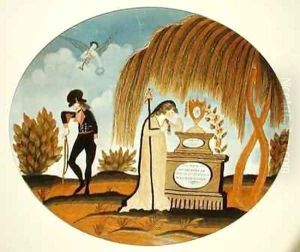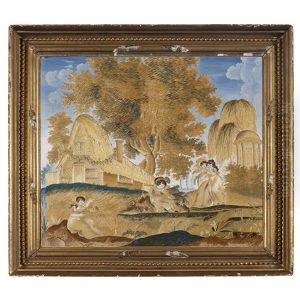Samuel Folwell Paintings
Samuel Folwell was an American artist, engraver, and painter, active in the late 18th and early 19th centuries. Born in 1764 in Philadelphia, Pennsylvania, he was part of the early generation of American-born artists in a time when the young nation was still forming its cultural identity. Not a great deal is known about Folwell's early life and training, but it is clear that he was part of the burgeoning art scene in Philadelphia, which was then one of the most important cultural centers in the United States.
Folwell's career encompassed a variety of artistic endeavors, including portrait painting, miniature painting, and engraving. During his career, he contributed to the visual documentation of the early American Republic's personalities and events. His works were created during a significant period in American history that included the aftermath of the American Revolution and the formation of the United States' first political systems.
Despite his contributions, Folwell's life and work have not been as extensively documented or studied as those of some of his contemporaries, such as Charles Willson Peale or Gilbert Stuart, who are well-known for their portraits of key American figures. Nevertheless, Folwell's surviving works provide valuable insights into the artistic practices and societal influences of the era.
Samuel Folwell's career was unfortunately cut short when he died in 1813. His death marked the loss of an artist who was an integral part of the early American art community. While his name may not dominate the annals of art history, his work remains an important piece of the cultural tapestry of the United States in its formative years.

